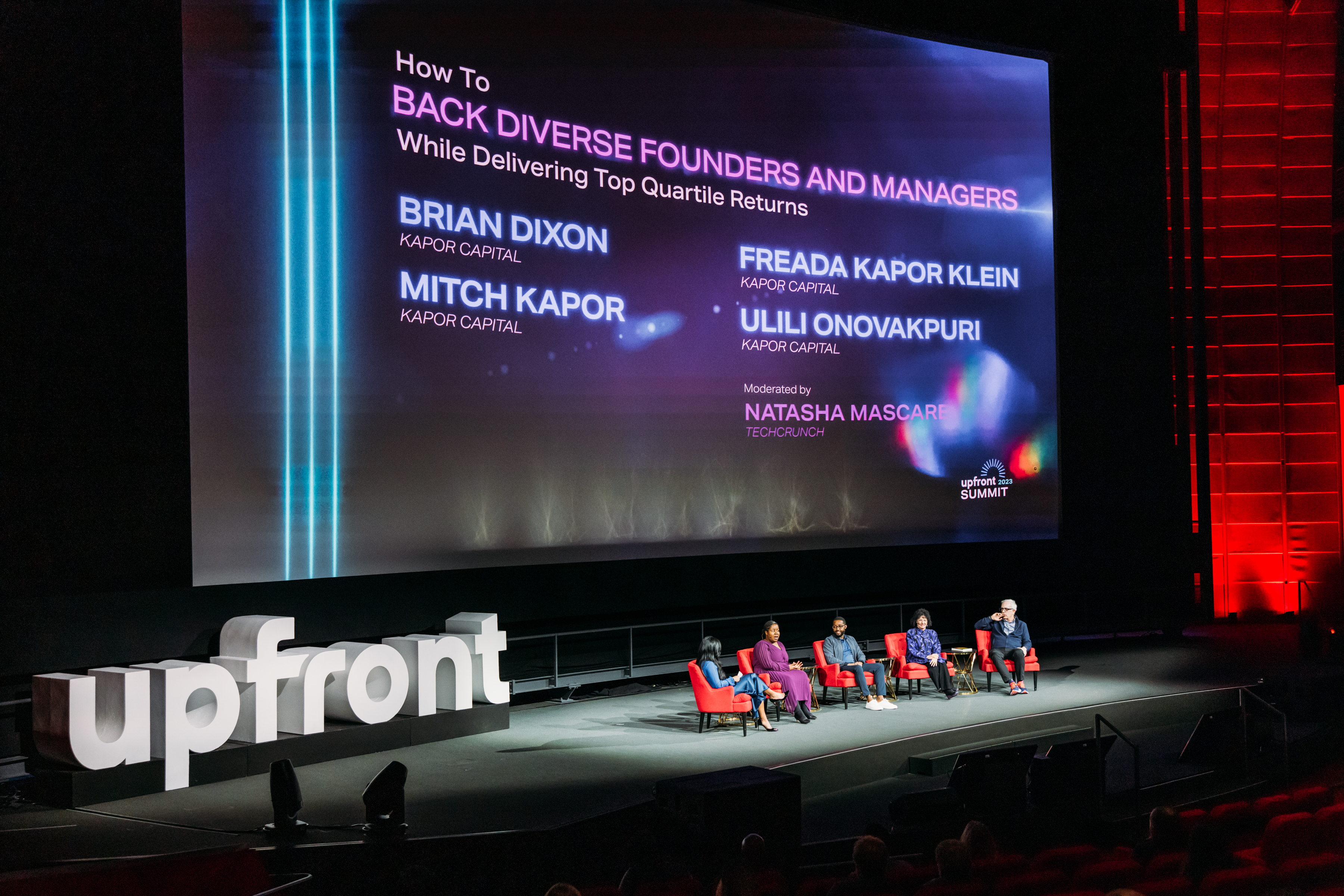Welcome to Startups Weekly, a nuanced take on this week’s startup news and trends by Senior Reporter and Equity co-host Natasha Mascarenhas. To get this in your inbox, subscribe here.
It’s hard to be proactive after the tide has already shifted. However, that’s what we’re seeing happen in the solo GP world, where investors, hearing about institutional investor risk appetite changing, are extending fundraising timelines, cutting investment vehicle targets or planning to leave venture altogether. Some have learned it the hard way, while others, like Sahil Lavingia, are telling LPs to literally cancel their checks if they feel guilty about investing in venture capital while the market rocks and interest rates boom.
It’s a shift from the fund of fund mentality that felt commonplace last year, in which investment firms cut checks to early-stage, experimental investors to de-risk and even lead first checks into a generation of new startups. Now, the idea of backing just one, feels like a harder sell — depending on which institution you’re speaking to.
For my full take on this burgeoning tension within the venture world read my TC+ column: “Are solo GPs screwed?”
I know some of us are still reeling from the SVB mess, which is still very much unfolding. My hope with this piece is to offer nuance on how the market moves on from here for a very specific subset of check writers. In other words, yes, there’s a dreary dark cloud that is now more visible than before. But umbrellas exist. Somewhere.
In the rest of this newsletter we’re talking AI, icons and demo days. As always, you can follow me on Twitter or Instagram to continue the conversation. You can also send me tips at natasha.m@techcrunch.com or on Signal at +1 925 271 0912. No pitches, please.
It’s never GM; it’s only AI
Now that I apparently live in Cerebral Valley, it’s quite easy to find investors, founders or my great friends in the middle of a passionate conversation about artificial intelligence. Heck, we even screencast ChatGPT trying to explain SVB during wine night, recently.
Despite the overactive news scene, thanks to ChatGPT plug-ins, Google’s entrance and Canva’s magic, the best piece I read all week came from our own Devin Coldeway. In this analysis, Coldeway published a head-to-head comparison of top generative AI tools — asking them to create everything from a phishing email to code.
Here’s what to know: In the AI world, the compounding effect is almost impossible to encapsulate. Tech keeps beating itself, and advancement is only to be celebrated with a grain of hopeful salt. But, see it yourself if you don’t believe me!
- OpenAI connects ChatGPT to the internet
- Klarna plugs ChatGPT into its platform for faster product recommendations
- Even the hottest startup categories are not immune from the venture slowdown
- Microsoft launches Loop, its Notion competitor, in public preview
- For tech titans, AI prominence is the new measuring stick

Image Credits: Andriy Onufriyenko (opens in a new window) / Getty Images
Overheard at Techstars’ demo day
I went to an in-person demo day for the first time since 2019 this week, courtesy of 500 Global. There was a special, earnest energy in the room, partially because, as 500’s CEO Christine Tsai said, the 19 companies are sharing their vision for the future “around one of the darkest backdrops of Silicon Valley.” More to come on specific learnings, but below I thought I’d bullet point some of the tidbits I overheard while at the accelerator’s pitch session.
- “I find it very insightful to compare your revenue growth with your team growth — I personally don’t like operations-heavy companies, I definitely want to see more investment in the R&D and product [teams],” Cindy BI, partner at CapitalX.
- “We’re officially teenagers,” Tsai said on the accelerator’s 13th birthday.
- “When you think of a brand, you probably think of something like Nike. But to Gen Z, some of the biggest brands are people,” Detoure founder and CEO Meghan Russell.
- “We know how to get exits done,” Peter Wachira, CEO of Tripitaca, later adding, “We know how to get shit done.”

Image Credits: ContemporAd / Getty Images
One of venture’s most iconic duos wants to have a word with you
I published a podcast interview with Kapor Capital’s Freada Kapor Klein and Mitch Kapor, the entrepreneurial investing couple behind the top-tier impact investing outfit. The duo published a book recently, so we talk about that, their choice to step away from investing and the legacy they’re continuing to build out.
Here’s one key moment from the podcast: “It’s also worth pointing out, in the early days, there were a couple of people, white men, who were thinking about working with us and decided we weren’t going to make enough money so they went elsewhere. So I hope they’re kicking themselves and I hope they’ve learned something,” said Kapor Klein.
- I was on comedian Alexis Gay’s podcast, Non-technical, earlier this month to talk about everything other than my day job. Come for the croissant hate; stay for the devil’s advocate advocacy.
- Also, listen to Found, a podcast about the stories behind the startups. This week, the team published an interview with the brains behind “a genetics startup that looks to bring extinct species back to life to help with environmental conservation efforts.” Jaw = dropped.

Image Credits: Clark Studio
Etc., etc.
- Throwback Saturday: If you missed Startups Weekly last week, catch my last issue here: “Let’s talk about succession plans.”
- Let’s hang on campus? TechCrunch is coming to Boston on April 20. I’ll be there with my favorite colleagues to interview top experts at a one-day founder summit. Book your pass ASAP! Speakers include Techstars’ Kerty Levy, Construct Capital’s Dayna Grayson and NFX’s James Currier.
- Big shout out to GQ’s Gabriella Paiella for this truly poetic profile of Jeremy Strong.
- Programming note: If you’re reading this on a browser, get this in your inbox too! Subscribe here and share it with your friends.
Seen on TechCrunch
Startup says the seaweed blobbing toward Florida has a silver lining
Hivemapper is 1M kilometers closer to goal of beating Google Maps
Twitter will kill ‘legacy’ blue checks on April 1
China reminds US that it can and will kill a forced TikTok sale
Seen on TechCrunch+
Threading the needle: Exploring 5 ideas with the founders of LGBT+ VC
Investors want best-of-the-best ESG data. Here’s how to give it to them
As TikTok and Coinbase face regulators, some questions are simpler than others
Pitch Deck Teardown: Prelaunch.com’s $1.5M seed deck
How Fellow bootstrapped for 8 years to build a coffee empire
Talk soon,
The tide has shifted for solo GPs by Natasha Mascarenhas originally published on TechCrunch
DUOS





